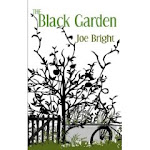Parnassus on wheels

by Christopher Morley
Rating: 5/5
Grade: B - 8 and up
Parnassus on Wheels is the story of Helen McGill, a nearly 40 year old woman, who lives with her brother on a farm, and keeps house for him. The balance of their calm existant is upset when her brother begins writing and publishing books, and seems to become obsessed with them; slacking off on the farmwork and leaving her to carry on alone for long periods of time. When a travelling booksalesman comes to try and sell his outfit to her brother, she goes to drastic and impulsive lengths to keep her brother from buying more books and leaving the farm again; and in so doing begins an adventure of her own.
This is a delightful little book. I don't know how I have missed reading it, or even knowing of it. I chanced on it at the library book sale for a quarter, and am so glad I did, else I might have gone my whole life never knowing of its existance. I would not call it a literary masterpiece, but I had a smile on my face while reading it, and I think that is a pretty good judge of a books merit.
Christopher Morley does not, however, pull off a woman narrator very well. It was very hard not to think of the person telling the story as a man, even with his frequent reference to self as a heavy, fat, large, spinster. This was overlookable, though, for the story was very fun, and the character of the professor (owner of Parnassus on wheels) extremely vibrant.
From the book: "'when you sell a man a book you don't sell him just twelve ounces of paper and ink and glue - you sell him a whole new life. Love and friendship and humour and ships at sea by night. - there's all heaven and earth in a book, a real book I mean. Jiminy! If I were the baker or the butcher or the broom huckster, people would run when I came by - just waiting for my stuff. And here I go with everlasting salvation - yes ma'am, salvation for their little stunted minds - and it's hard to make them see it."
Isn't it true that those who read seem to think of those who don't as having small minds. There seems to be a prejudice on both sides of the matter. As Christopher Morley points out through his character at the beginning of the book. Helen McGill opens up her story by saying, "I wonder if there isn't a lot of bunkum in higher education. I never found that people who were learned in logarithms and other kind of poetry were any quicker in washing dishes or darning socks...I've also seen lots of good, practical folks spoiled by too much fine print. Reading sonnets always gives me hiccups, too." Of course, Helen changes her views by the end of the story, but it is a good point. I certainly can't say that any 'book learning' I have acquired has helped me out much in the day to day mundane tasks, and reading does take me away from these things.
I don't believe that one point of view is right or wrong. And I don't believe that enjoying reading makes me in any way better than people who don't. I think the best we can hope for is to find someone who shares the same views. Someone who dosen't mind floor to celing books in the house, and the dishes left undone when an especially tantalizing book is calling.





1 comments:
Here I ambled over to read your Tuesday Thinger post and discovered that you and I read (and enjoyed) the same book recently! My review is here>.
Post a Comment